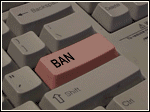I am building a NAS in RAID 1 (Mirror) mode. Should I buy 2 of the same drive from the same manufacturer? or does it not matter so much?
Quite the opposite. Use drives from as many different manufacturers as you can, especially when buying them at the same time. You want to avoid similar lifecycles and similar potential fabrication defects as much as possible, because those things increase the likelihood that they will fall close to each other - particularly with the stress of rebuilding the first one that failed.
To the best of my knowledge, this “drives from the same batch fail at around the same time” folk wisdom has never been demonstrated in statistical studies. But, I mean, mixing drive models is certainly not going to do any harm.
If everything went fine during production you’re probably right. But there have definitely been batches of hard disks with production flaws which caused all drives from that batch to fail in a similar way.
I know it’s only what I’ve experienced but I’ve been on a 2 weeks of hell from emc drives failing at the same time because dell didn’t change up serials. Had 20 raid drives all start failing within a few days of each other and all were consecutive serials.
If I had a dollar for every time rebuilding a RAID array after one failed drive caused a second drive failure in the array in less than 24 hours… I’d probably buy groceries for a week.
When using drives from the same model and batch?
I’ve heard just in general. The resilvering process is hard on all the remaining drives for an extended period of time.
So you’re saying I should be running RAIDz2 instead of RAIDz1? You’re probably right. 😂
I made that switch a few years ago for that reason.
That said, as the saying goes, RAID is not a backup, it should never be the thing that stands between you having and losing all your data. RAID is effectively just one really dependable hard drive, but it’s still a single point of failure.
So you’re saying I should be running JBOD with backups instead of RAIDz1? You’re probably right. 🤭
As long as you’re ok with it being way less dependable, and having to rebuild it from scratch more often 😉.
Yup. Same age, same design, same failures… and array rebuilds are super intense workloads that often force a lot of random reads and run the drive at 100% load for many hours.
I don’t know if you’re talking about the sample of cases you’ve personally witnessed, or the population of all NASes in the world. If the former, that sounds significant. If the latter, it sounds like it’s probably not something to worry about.
You can use different manufacturers, just make sure they are the SAME size and speed. You can also get the same ones from the same vendor, just from different online shops to try and offset getting a bad batch.
You absolutely can. Of course you’ll only be able to use as much capacity as the smallest disk. Sometime ago I was running a secondary mirror with one 8TB disk and 3 disks pretending to be the other 8TB disk. They were 4TB, 3TB and a 1TB - trivial with LVM. Worked without a hitch for a few years till I replaced the three gnomes in a trench coat with another 8TB disk. Obviously that’s suboptimal but it works fine under certain loads.
Oh my god i love that.
Gotta treat for ya:

The three gnomes in a trench coat are the three from the left.
Bonus:


This is how you fix intermittent disconnects under heavy load.
Speed holes!
I always thought you’re supposed to buy similar drives so the performance is better for some reason (I guess the same logic as when picking RAM?) but this thread is changing my mind, I guess it doesn’t matter after all👀
ram matters because the CPU will use the worse speeds and worse timings of all the sticks, drive reads and rights are buffered so it doesn’t really matter
Just make sure your RAM has the same timings. Its not a big deal if you have two sticks of each brand
If you haven’t looked into it, and if you already have the disks of varying capacity, check out JBOD. You will have to configure a system for backups however as you wont have parity like raid1
Raid is not a backup…
I’m aware, but raid 1 is mirroring which is redundancy, a jbod offers no redundancy so a backup would be even more crucial to protecting from data loss. Also i never said raid is a backup.
Can’t you just format jbod with zfs or some other raid solution? I’m sure it depends on hardware but it shouldn’t be rocket science
Hardware or software (BTFRS, ZFS etc…) RAID?
Software
It probably doesn’t matter in most cases, especially software RAID. I’ve had proprietary storage system vendors recommending being very careful about identical disks but that could just be salesman crap.
^this. but I’ll go even further, do you @mypasswordis1234@lemmy.world really need RAID? How much date are you planning to write every day?
In some case, like a typical home users with a few writes per day or even week simply having a second disk that is updated every day with rsync may be a better choice. Consider that if you’re two mechanical disks spinning 24h7 they’ll most likely fail at the same time (or during a RAID rebuild) and you’ll end up loosing all your data. Simply having one active disk (shared on the network and spinning) and the other spun down and only turned on once a day with a cron rsync job mean your second disk will last a LOT longer and you’ll be safer.
Right up until that job to turn the other drive and run the backup stops and then you don’t realize it until 17 months later.
Either way, RAID ain’t a backup, but it makes losing a drive easier.
If you don’t setup and monitor things properly everything fails and keep going in an unpredictable state - even a software RAID.
I would strongly recommend that you get the same drive. It doesn’t make any sense not too
I usually find the cheapest drives and buy multiple of those, but you should be able to assemble a RAID out of different disks, though you’ll be limited to the space of the smallest one in the mirror set.
Also make sure that your RAID systems supports this.
Okay. Where do you buy the disks?
Ebay. If you’re outside the US, you’ll probably be better off with a more local site.












